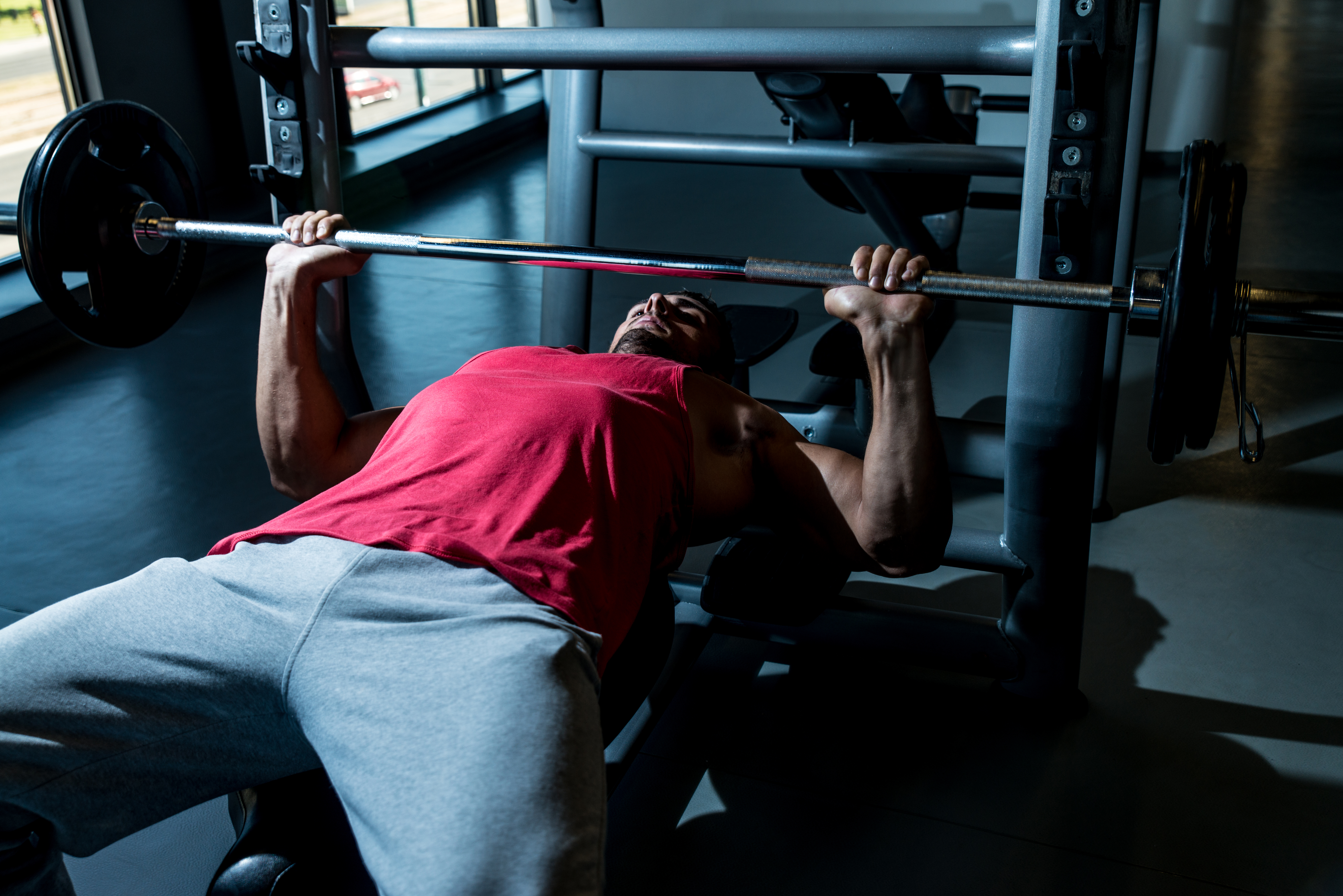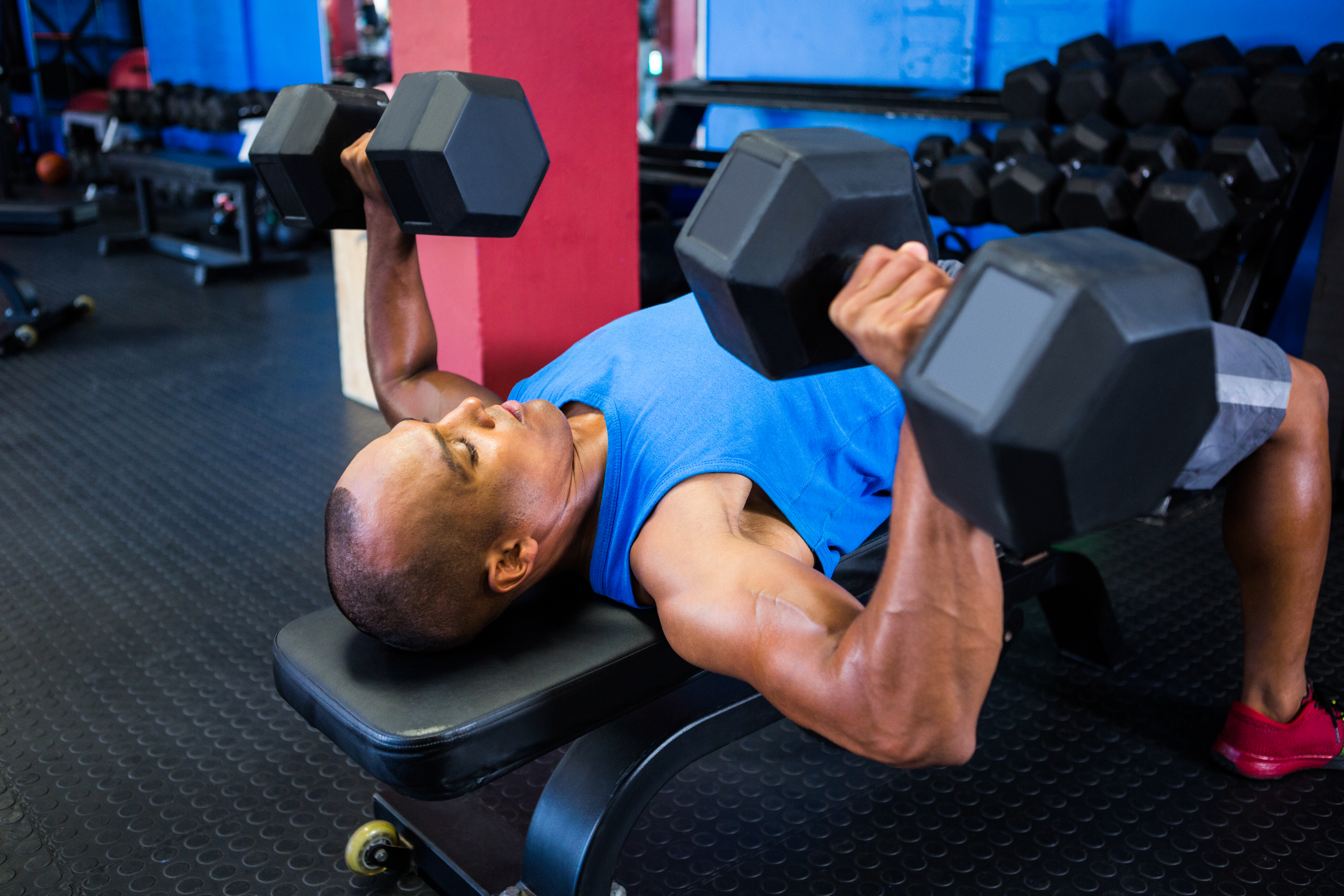While working similar muscles, both the bench and dumbbell press still bear big differences. Which is best for you?
When selecting which lift to work with, it's best to consider your goals and body. More often than not, your physiological make-up dictates which exercises are best for you.
Two fine examples are the dumbbell press and bench press. Both are great chest, shoulder and tricep builders, but also have their differences.

Benefits of the bench
In terms of sheer strength, the bench press wins hands down. There's a reason it's considered one of the 'big three' alongside the squat and deadlift. Barbells allow for the heaviest amount of weight to be lifted. Sports that test your maximum strength (e.g. rugby, American football) will benefit most from the bench.
The barbell may be a limiting factor, however. The path of the bar will stop at your chest, which actually limits the stretch placed on your pecs. As a result, the bench press provides more stimulation for the shoulders and triceps.
Due to the fixed nature of the bar, the bench may also aggravate your joints a little more. If you've a history of shoulder issues or are recovering from injury, it's worth bearing this in mind.
Deciding on dumbbells?
If chest muscle growth is more of a priority for you, then dumbbells are definitely a wise choice. You are in complete control of the range of motion when performing dumbbell presses. You'll also be able to take the contraction past your chest - whereas the bench press stops there.
What this means is that there will be greater tension on the muscle fibres of your pecs. This kind of exercise also improves your technique due to the free movement of dumbbells. You won't be able to lift as much weight as you would on the bench, but dumbbell presses are much kinder to your joints.
If you lead a desk-based lifestyle then this in particular may save your shoulders from further pain.

The verdict
It all depends on your fitness goal. If you've aspirations of becoming a powerlifter or you play a sport where the bench is tested, you'll need to prioritise this lift. If you're trying to pack on pec size, dumbbells are arguably a more efficient and safer option.
There are always ways around the bench press, too. NFL players returning from shoulder surgery instead perform presses using a Swiss bar - a specific kind of barbell.
The workout
Going for growth? Whether you've opted for the bench or dumbbell press, ensure that metabolic stress plays a part in your workout.
David Kingsbury has explained how you can incorporate this into your plan. Kingsbury is a personal trainer who has trained actors for films such as
The Wolverine,
X-Men and
Assassins Creed.
https://www.youtube.com/watch?v=PmcBahh6rXE
He says:
"Metabolic stress is brought on by three things:
- Lack of oxygen supply in the muscles due to the trapping of blood
- Build-up of metabolic byproducts such as lactate
- The 'pump' of the muscles due to the pooling of blood"
To achieve the right amount of metabolic stress, shoot for reps of 6-12 and a rest period of 90-120 seconds between sets.
Getting a pump on isn't all about vanity, as Kingsbury states. There's a definite logic behind the method.
"Chasing the pump isn’t a bad thing when it comes to muscle building. Performing exercises within your session to achieve mechanical stress and metabolic stress will bring the best results.
"For mechanical stress, focus on heavier loads and longer rest periods."
Read more on Eddie Hall's impressive 25 kilo weight loss transformation



